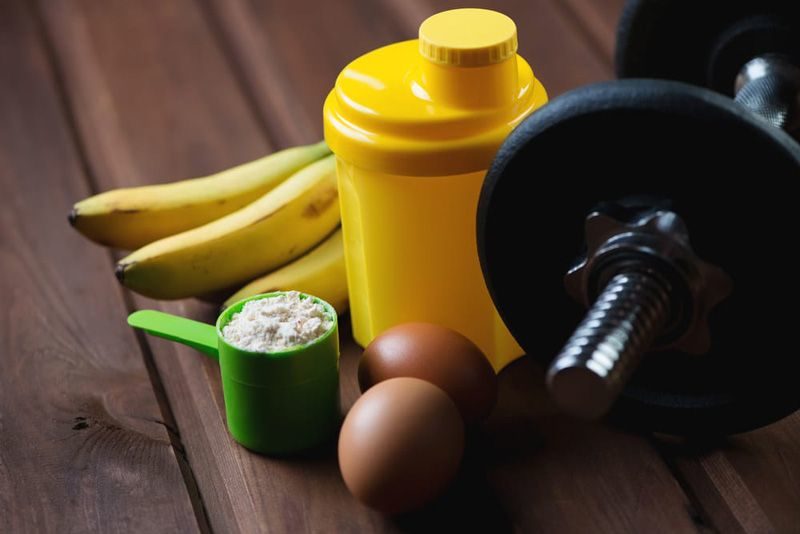Superfoods - Essential Nutrition To Support Training
Thursday 24 October 2019

When starting resistance or strength training for the first time, it is vitally important to get the diet and nutritional side of things spot on first. You might have the best training program in the world (if such exists), however without perfecting your nutrition, your training may be in vain and you will not be maximising your gains. The majority of newbies but not my personal trainer seem to rely solely on chicken for their number one protein source, and while this is by no means a bad option; certain other foods are either overlooked or thought to be unhealthy or a bad option.
Below you will find a list of certain foods that should form part of any diet either on a weekly or daily basis when training for size and strength.
1. Eggs
Eggs should be included in everyone's diet who is striving for muscle or size, and we mean whole eggs, not just the egg whites. Not only are they the ultimate source of protein, they contain an abundance of amino acids. On average, one egg contains six grams of high quality protein and nine essential amino acids, perfect for regulating protein synthesis and repairing your hard worked muscles. They also contain a good source of healthy fats, with the average egg containing just 5 grams of fat of which only 1.5 grams is saturated fat, and are one of the only foods that contain naturally occurring vitamin D. One egg yolk contains roughly 300 micrograms of choline, which is an important nutrient that helps maintain the brain, cardiovascular and nervous system. Due to their high amounts of sulphur and abundance of vitamins and minerals, eggs can also promote healthier hair and nails. Studies at Texas A&M University concluded that people who followed some form of resistance training whilst consuming three whole eggs per day achieved almost double the muscle mass and strength gains as those eating just one whole egg or none per day.
2. Whey Protein
Whey protein may be a supplement derived from cow's milk and not be available in wholefoods nevertheless it is still one of the most enhanced sources of protein you can consume. Whey is the fastest absorbing protein you can ingest, meaning it reaches your muscles in super quick time to begin working on repair and recovery hence stimulating growth. It is therefore the ideal protein to take immediately post training. Whey is prolific with BCAA's and provides peptides (small fragments of protein) that enhance blood flow hence transporting nutrients around your body quicker.
3. Beef
Beef is critical when it comes to packing on muscle. Although many sports nutritionists consider the saturated fat content to be dangerous, studies have shown that it in fact can increase testosterone levels along with strength gains and muscle mass. Beef also contains many vital nutrients that all support energy, muscle growth and repair. These include creatine, iron, vitamin B and Zinc. Not forgetting, it is also high in protein. Those seeking mass gains should aim to consume at least one portion of red meat every other day.
4. Casein Protein
Casein, like whey, is another milk protein. Research has shown that people adding casein protein to their post workout shakes pack on more muscle mass than those that do not. Casein protein has also been shown to not compromise hunger after consumption, which is ideal for when you are trying to intake extra calories to bulk up. This makes casein the perfect protein to take in-between meals or as a snack to top up your daily requirements without filling you up, which is important when trying to build muscle, as you need to eat!
5. Omega 3
Omega 3 fatty acids are essential fatty acids and are beneficial for your health. The body itself cannot produce them; hence, you can consume them through food or supplements. They occur in fish, such as salmon, halibut and tuna. Apart from playing a vital role in muscle growth and development, they can also prevent muscle breakdown and reduce body fat. They are mostly ideal for bodybuilders or those performing resistance training, as evidence is present that omega-3 can reduce muscle inflammation following strenuous workouts. Recent studies have shown omega-3 can also help support brain function along with improving your overall mood and feeling of wellbeing, and they have become more popular since the announcement they might reduce the risk of heart disease. Try to consume fatty acids from fish at least twice a week.
6. Nuts
Nuts are a great protein source, magnesium and unsaturated fats that provide you with energy and encourage muscle tissue repair. There is no evidence to show nuts directly influence muscle mass, however they do provide quality nutrients to support your body in building new muscle.
Although not all essential, nuts contain amino acids. Consuming 1.5 oz. nuts daily can provide more than ten percent of your recommended amount of protein. Nuts with the highest protein content include peanuts, cashews, walnuts and almonds. Nuts also contain plenty of healthy fats, including omega-3 fatty acids, promoting adequate strength training due to the role they play in muscle repair and inflammation reduction.
